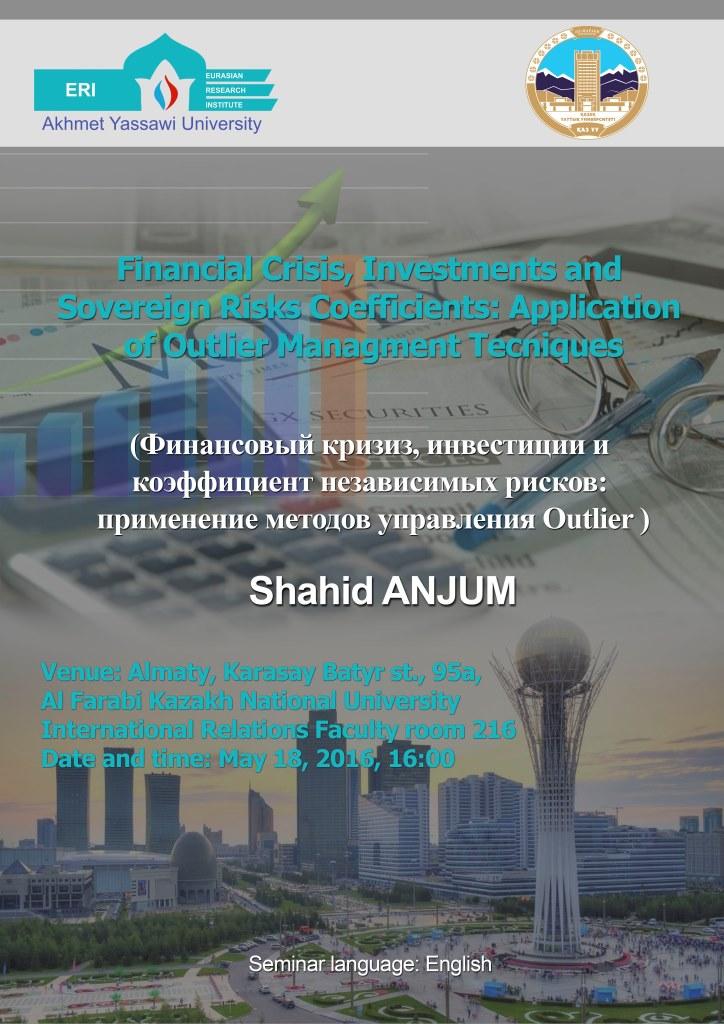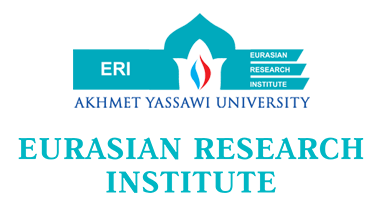Dr. Shadid Anjum
Eurasian Research Institute and Al-Farabi Kazakh National University invites you to participate in Economy, Finance and Energy Studies seminars titled “Financial Crisis, Investments and Sovereign Risks Coefficients: Application of Outlier Managment Tecniques” which will be held on 18 May 2016 and given by Dr. Shadid Anjum from University Teknologi Brunei. The seminar will touch upon mainly the financial risks and its management more specifically coeffient calculations in risk management.
Global financial crisis of 2008 has not only skewed the financial data sets by generating extreme values but has also skewed the coefficients calculated by the methodologies which are inherently incapable of handling the outliers. This has also resulted in the estimation of sovereign risk betas which started painting an exaggerated risk picture which in turn may have carried the potential to negatively affect the flow of foreign investments to those destinations. There are multiple solutions available in the literature to tackle outliers including the niche regressions. Niche regressions have multiple variants but are based on the idea of ranking regressions with multi criteria decision making tools called fuzzy-AHP intelligent zax (FAIZ) and best auto-logic AHP-mated (Be-ALAM) frameworks both using aggregated zoom AHP-mated (AZAM) regressions for beta estimation.
In order to compare betas from various estimation techniques like OLS regression, reverse regression, Be-ALAM-AZAM regression and FAIZ-AZAM regression, current study has used betas from eleven world economies. Based on the variety of results generated by these methodologies, it has been argued that results from various estimation techniques needs to be used with caution and depending on the purpose of such usage. Thus results of various methodological variants may build some case to market a particular economy as a potential destination for foreign investments by depicting reduced sovereign risk. These moderated betas may in turn help to foster the development cause through the moderation of cognitive biases of the investor community, foreign investment managers and development based policy designers.

